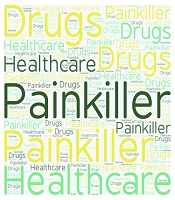Dear Editor,
Pain is a universal human experience that can significantly impact one's quality of life (1). Chronic pain, whether caused by injury, illness, or other factors, can be debilitating and affect daily functioning (2). In Nigeria, specifically in the northern regions, the reliance on painkiller tablets has become a prevalent means of seeking relief from various types of pain (3). Like many other regions worldwide, northern Nigeria faces significant challenges in providing adequate healthcare services to its population (4). Limited access to healthcare facilities, shortages of medical professionals, and the high cost of healthcare often force individuals to resort to self-medication for pain relief (5, 6). As a result, painkiller tablets have become readily available over-the-counter solutions for many common ailments.
In this region, many remote areas lack specialized clinics or hospitals equipped to provide comprehensive pain relief services (4). Consequently, individuals must often travel long distances, endure extended waiting times, or even forgo treatment altogether. Cultural beliefs and stigma surrounding pain and pain management play a crucial role in shaping individuals' perceptions and actions. Some cultural beliefs may view pain as a normal part of life, leading individuals to downplay its significance or accept it as inevitable (7, 8). Additionally, the fear of being labeled weak or dependent on medications can discourage individuals from seeking professional medical care. Misconceptions about painkillers and addiction may further exacerbate this issue, preventing people from pursuing appropriate pain relief options (9, 10).
Limited awareness and education about pain management contribute to the reliance on painkillers as the primary solution (11). Many individuals may not be aware of alternative methods or non-opioid pain management techniques. This lack of knowledge leads to a disproportionate focus on painkillers as the sole means of pain relief. Education initiatives that promote understanding of various pain management strategies, including physical therapy, exercise, and psychological interventions, are vital in empowering individuals to make informed decisions (12).
Accessibility and affordability of pain medication pose significant challenges for northern Nigerians seeking pain relief. In remote areas, the availability of painkillers is often limited, forcing individuals to travel long distances or rely on traditional remedies that may not be effective (13). Moreover, the cost of medications can be prohibitive for many, especially those with limited financial resources. The combination of limited availability and high costs creates barriers to accessing essential pain relief treatments.
Weak drug regulation and control systems contribute to the misuse and overuse of painkillers, increasing the risk of dependency. Inadequate monitoring of prescribing practices and distribution channels allows for the unregulated sale and consumption of pain medication (14). Without proper oversight, individuals may unintentionally develop a dependency on these drugs, worsening their pain management struggles. Addressing regulatory challenges is essential to ensuring responsible prescribing, preventing misuse, and promoting safer pain management practices.
The plight of northern Nigerians seeking pain relief requires a comprehensive and multifaceted approach. Here are some strategies that can help alleviate the challenges: Firstly, investment in healthcare infrastructure is crucial to establish well-equipped medical facilities, train healthcare professionals, and improve access to pain management services across northern Nigeria (15). Secondly, initiatives should focus on raising awareness about pain management options, debunking myths surrounding painkillers, and promoting alternative therapies. Public campaigns and educational programs can empower individuals to seek appropriate pain relief and reduce stigma (16).
Thirdly, efforts should be made to enhance the availability and affordability of pain medications in remote areas. This can be achieved through partnerships with pharmaceutical companies, government subsidies, and the establishment of targeted distribution networks. Fourthly, strengthening drug regulation and control systems is essential (17). This includes enforcing appropriate prescribing practices, monitoring medication distribution, and implementing measures to identify and address cases of painkiller dependency.
Fifthly, integrating alternative therapies, such as physiotherapy, acupuncture, and psychological interventions, into pain management strategies can provide additional options for individuals seeking relief while reducing reliance on painkillers (18).
The plight of northern Nigerians seeking pain relief highlights the need for urgent attention and comprehensive action. By addressing healthcare infrastructure challenges, promoting education and awareness, improving medication accessibility and affordability, strengthening regulation and monitoring, and integrating alternative therapies, we can enhance pain management services and improve the lives of individuals grappling with chronic pain. Collaborative efforts involving government agencies, healthcare providers, community organizations, and international stakeholders are crucial to tackling this complex issue and ensuring that no one suffers needlessly from the lack of accessible and effective pain relief.
